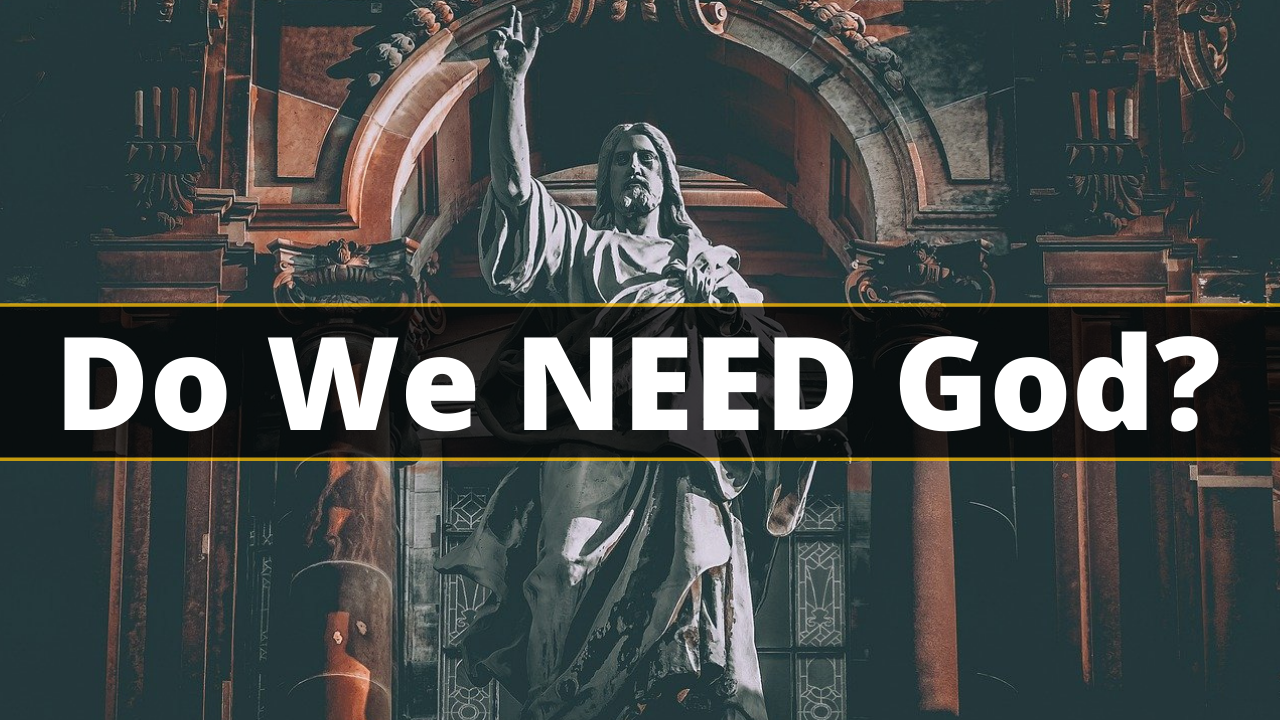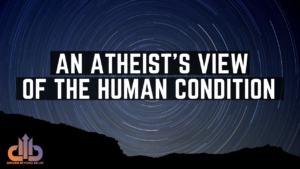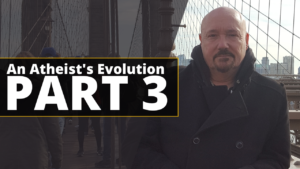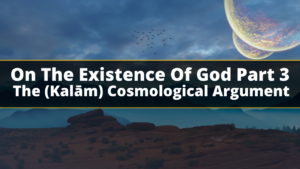Are we hardwired to seek god or gods? Is it something in our nature to attempt to reach for the transcendent, or to feed our need for answers?
Ask for proof of God and any theist will struggle to provide a convincing argument. This is simply because it's an impossible task. It is impossible to demonstrate God, as there is no physical evidence of God's existence. To believe in God you have to have faith!
Every sect of every religion has a different explanation of who God is, and in all the deity based religions of the world every individual has their own interpretation of the God of that sect.
There is no one baseline description of God. Everyone has their own version; it's what God means to them. They are guided by others of course, normally leaders of their chosen faith, their church, but ultimately God is personal.
In order to justify this blind faith in a God, God has to offer something that the secular or scientific world doesn't seem to be able to. Either that, or we haven't defined what that thing is, and find a secular replacement.
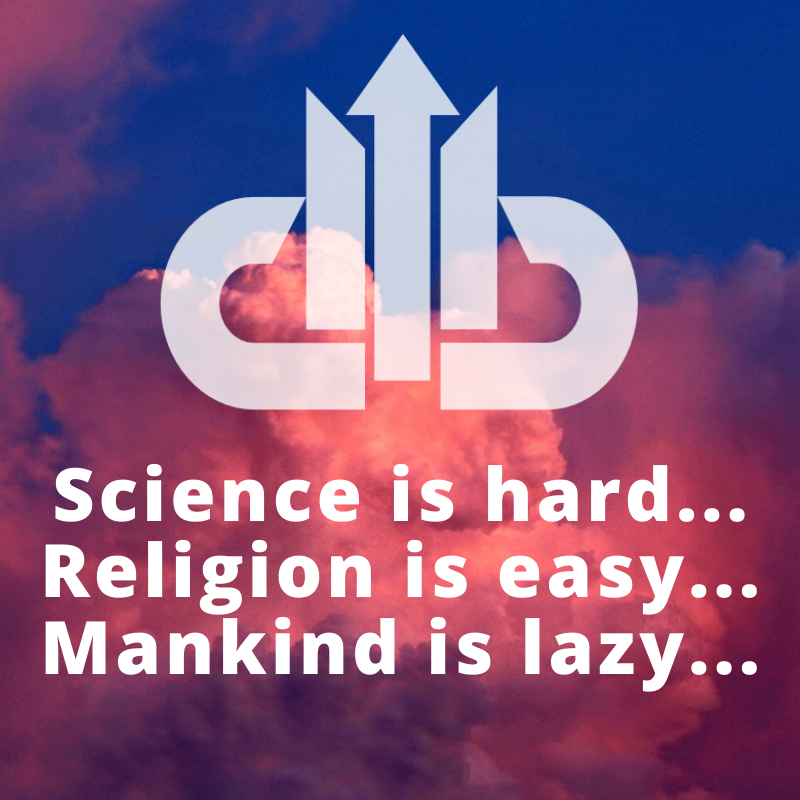
One of the things that faith offers that science finds a little difficult, is definitive or absolute answers. Specifically answers to the big philosophical questions.
1 - Where do we come from?
2 - Why are we here?
3 - What happens when we die?
Although science can offer substantially valid hypothesis to some of these questions, the answers are by no means solid. The answer to the first question "Where do we come from?" can be answered up to a point by science with the Big Bang Theory, Abiogenesis and the Theory of Evolution. Cosmology, physics and Biology can only go so far, or rather our knowledge and understanding of our beginnings can only go so far, there are still big holes that need to be filled.
The second question "Why are we here?" is not one for science and more suited to philosophy, and the third "What happens when we die?" in scientific terms is simple, we cease to exist.
The last one is possibly the hardest one for theists to come to terms with. As an atheist, I'm not too freaked out about death. I've come to terms with the fact that when I die, I will not be going anywhere but in the ground. I'm quite happy to go back to the soil.
That doesn't mean I'm in any way happy with the prospects of old age and dying. The thought of the end years are full of anxiety, but the concept of what happens after we die has never bothered me. I'm quite happy with the notion that nothing awaits. In many ways, having a rational belief that I'm just another animal that will eventually cease to exist is a comfort of sorts. To believe in an afterlife is to me, such a bazaar notion which goes against everything I rationally believe, the idea totally incoherent.
Theists on the other hand have a hard time with this. They believe in Heaven or Paradise, and in some religions there are the concepts of Hell or Purgatory and for a literal fundamentalist, Hell is very real and consequently absolutely terrifying. The thought that they, or someone they love could go to Hell is a very real and distressing fear. It's sad really. Even as a child I could see through that scam. You see, the Christian church HAS to make sure their flock has a very real belief in Hell, because if the concept of Hell wasn't pushed as a psychic threat then there really is no need for a saviour or to be saved, and their three ring circus has to leave town for good.

The promise of a glorious afterlife is also a psychological weapon to be used to exert control over those who choose to follow faith. It can be used in an attempt to promote good or moral behaviour; it can also be used as a way to brainwash the week of will to commit atrocities in the name of God.
Wouldn't it be better to teach our children to be good and kind, to embody and promote empathy and compassion rather than lie to them about mythical, supernatural kingdoms of reward and punishment?
Isn't it better to live a good, communal life because it makes you and everyone around you feel better and more fulfilled, rather than trying to live a good life on the purely selfish, narcissistic premise of what it means to you, heaven or hell?
To recognise that we're here to be the best we can be and leave the world a better place than when we arrived, rather than living this life in preparation of the next. Let's take responsibility of our lives, the lives we have right now on this planet. Let our lives count now.
These supposed unfulfilled answers or ambiguities in the secular world are not good enough for people of faith. These questions are all encompassing. They are questions that we humans have a desperate yearning to answer. Religion can boast that they KNOW the answer to all three. The problem is that the answer from religion is always God. A God we cannot see, feel, touch, smell or hear. A God we have absolutely no evidence for and one that only reveals himself to those who apparently "truly" believe.
Don't know how the universe began? The answer must be God. Don't know how life sprang from non life? Again, must be God. What about our experience when we come close to death? This of course is proof of an afterlife and consequently God!
It's what you can call a God of the gaps! Any gap in our knowledge can be filled with the convenient solution that it must be God. Today that gap is getting squeezed into a smaller and smaller space the more we discover through science, but science may never have all the answers and consequently there will always be a gap and miraculously always a God to fill it.
Where Did We Come From?
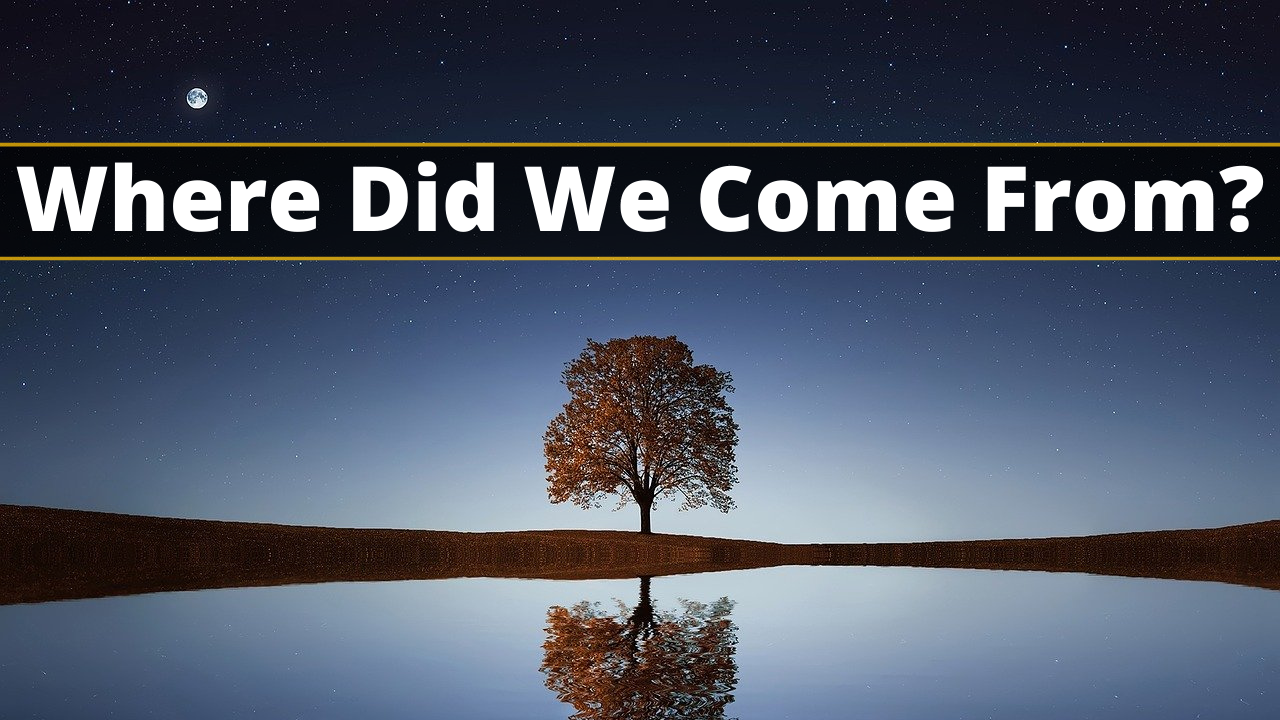
So where did we come from? - That's a simple one for a theist, God created us. How do they know this? Again a simple one. It's written in their chosen holy text.
The story of creation, the creation myth is a simplified symbolic narrative that is used in most cases to describe how a specific cultures' world began, and how humans populated the earth. Other creation myths look at the origins of the Universe as well as the creation of the Earth and the teaming life it supports.
All myths are different dependent on religion, belief system and culture. Pretty much all creation stories have supernatural beings that start the process.
From our twenty first century perspective, it's easy to understand that primitive people came up with stories like this to try to understand the world they found themselves in, as well as a way to understand or explain their beginnings.
Imagine being a Bronze Age Shepherd sitting around a fire on top of a hill overlooking the Sea of Galilee. Above you, the great arc of the Milky Way bejewelled, crystal clear and inspiring great awe, it fills your view.
As you look to the skies, you remember the stories that have been handed down through generations of a great God who created the heavens and the earth. How could you doubt the magnificence, manifest before your eyes? How could it not move you to wonder?
The truth is we need to resolve mysteries, even if we're wrong, it's in our nature. These stories, carried through the generations become more sacred as time goes by. Elders would need to find reasons to protect these stories as they would have been passed down through time.
The stories gave their existence some meaning. Having a definitive knowledge of where they come from would have been important to the culture, and the holders of that knowledge would have been important within that culture.
The Abrahamic religions which are primarily Judaism, Christianity and Islam all follow a similar creation myth. There are some fundamental differences between the Judeo-Christian version of creation and the Islamic version, but the gist is the same.
In the Qur'an the story of the creation has to be pieced together from verses throughout the text, whereas the Christian Bible and The Jewish Torah has the creation story concisely in one place in the Book of Genesis.
These Abrahamic creation myths are known as "Ex-nihilo" from the Latin meaning "out of nothing". In fact many creation myths from all around the globe have this "out of nothing" was brought forth something concept. This is entirely understandable as it is the story of the very first thing that we could imagine.
The Judeo-Christian "Ex-nihilo" myth from Genesis says;
"In the beginning God created the heaven and the earth. And the earth was without form, and void; and darkness was upon the face of the deep. And the Spirit of God moved upon the face of the waters. And God said, Let there be light: and there was light."
I can see how these words could enlighten someone, even today. The words are full of wonder, and are written to set the Judeo-Christian God up as an all powerful creator, someone to be feared and venerated.
The words fire the imagination, and to people of the Bronze and Iron Age, would have been a totally acceptable explanation of how their world came into being.
Using this very same concept, science, on the surface, has given us a possible "ex-nihilo" storyline. This one however is based on scientifically observable facts, which is of course the Big Bang Theory.
In Cosmology and Physics we still have no idea what caused the Big Bang; in fact we can only go back as far as a hundredth of a billionth of a trillionth of a trillionth of a second after the initial dynamic expansion.
So how was the Big Bang initiated? This question needs an answer and although religion claims to provide one, it's nowhere near good enough for those who want to discover the truth. We don't really know if the Big Bang manifested from nothing. It's a really difficult task to quantify exactly what nothing is. If you could quantify it, it wouldn't be nothing, it would be something called NO thing or something which has a state of what we could label as nothing!
So the beginnings of our universe could have possibly be a creatio ex-nihilo event, meaning creation from nothing, conversely it could be a creatio ex-materia event which of course means creation out of some pre-existent, possibly eternal matter. We simply don't know (yet).
The very fact that science has no idea about the cause (if it actually had a cause) means we are driven, through science to find a real and truly meaningful answer.
You can see why even today, with all the math, physics, cosmology and the other sciences, some people will come to the conclusion that the Big Bang is as close to the truth as we can come.
The problem is, many see the Big Bang as having a cause or something which must have happened to initiate the early dramatic expansion. As science has no idea what that cause is as yet, religion steps in and fills the gap. It was of course the hand of God.
It's almost like theists cannot say the three simple words that fuels the scientist to discover more. Those three simple words are "I don't know".
Why Are We Here?

The next of the fundamental questions is why are we here? - This is really all about the reason for our being. What is our purpose in life or our life's purpose?
To me this is a really difficult question to answer because I honestly don't believe we have an intrinsically meaningful, externally dictated, reason for being. In other words, we are not here to fulfil an actual purpose. That doesn't mean our lives serve no purpose nor have no meaning. That's a whole different story.
If you believe there was no agency in our creation then by definition we were not put on this planet to "do" anything. We are simply the most intelligent branch of the great apes who, through evolution have become Homo sapiens. In other words we are just awesome problem solving monkeys!
Robert Ardrey

We were born of risen apes, not fallen angels...
American Playwright
For people of religion, especially the Abrahamic religions, God has defined our purpose in the Old Testament or Hebrew Bible through characters like Solomon, or as he is know in the Qur'an Sulayman (a major prophet in the Islamic faith), son of David.
Solomon, in traditional Jewish text has been named as the author of Ecclesiastes which is one of the 24 books of the Tanakh (Hebrew Bible or Old Testament). Solomon is portrayed a wise King of Israel who succeeded his father King David.
In Ecclesiastes 12:13 Solomon wrote: 'Now all has been heard. Here is the conclusion of the matter. Fear God and keep his commandments, for this is the duty of all mankind.'
It looks like mans duty is just to serve God, where as the secular view is you get the most out of life from serving others.
Albert Einstein said, 'A life directed chiefly towards the fulfilment of personal desires will sooner or later always lead to bitter disappointment'
Our reason for "being" may not have an answer. If that is the case then some people of religion will have a real and very deep routed profound problem with this.
Religion tells us we are special, made in the image of God. It gives us a warm feeling, it gives us justification for being, a sense of higher purpose and we like that.
There is a very real human desire to believe that there must be a higher reason for our existence. Not a simple earthly one, and yet the reasoning behind our species having some special God given purpose is completely unjustified. Why do we think that there is some grand cosmic plan, one designed by a creator?
Is the wonderment of life not enough? Think about the incredible journey we are on. The road from early humanoids to the Homo sapiens we are today. It's an incredible story of growth and survival.
Just think where we could be in another hundred thousand years from now, if we could redefine what 'purpose' means in a reality without God.
At some point we as a species are going to have to take on that task, come out of the shadow of the supernatural and face the bright sunshine of truth and reality.
What Happens When We Die?
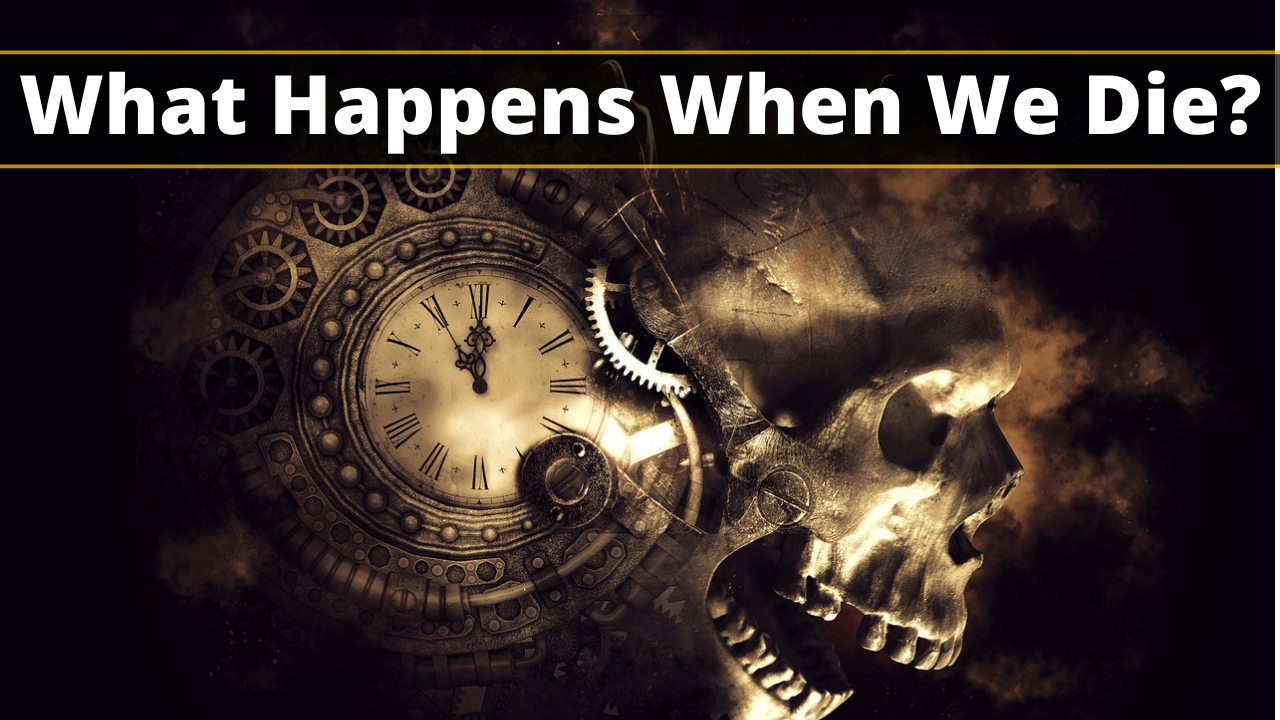
Lastly we have to face the inevitable, what happens when we die? - This is another question that in science has a very simple answer. We die and our body is returned to the soil. It may sound a little final, but that's exactly what it is.
We didn't exist for the first 13.8 billion years and when we die we will stop existing again. Only the memories of us will survive, within the thoughts of our loved ones and the legacy that we leave. It's just wishful thinking to believe that our consciousness somehow survives the body.
I can understand why one would prefer to believe in an Afterlife, after all what is the alternative? The term for the permanent cessation of one's consciousness upon death is called "Eternal Oblivion" and that doesn't sound nice at all.
It's so much easier on the mind to have the delusional belief that when we die our identity or the stream of our consciousness continues after the passing of our physical body, that we transcend to a better place where we will meet our ancestors again and live forever.
It's also comforting to people who are dying to be told that they will survive death and move to a different level of existence, one without pain and a deep feelings of love.
The ego may play a part in the delusion. After all, so the thought goes, there has to be something more to our existence than this?
This is again part of the human condition, we need to feel special. We can't be just an advanced species of animal, living on a rock in a deserted suburb of the Milky Way.
There is no doubt; religion could give you a form of comfort at the expense of truth. Just think for one moment what a world would be like if all religion and the belief in the supernatural were put aside. We would have to reconcile that we have just one shot, that what we do in this life affects our children and the generations to come, and none of us have a second chance. There is no redemption of sins, you have to stand in your community on what you do now and be judged by the nature of your character and the legacy that you leave.
It would also give us greater perspective on the sanctity of life itself, your life and the lives of others around you.
Does our desire to have definitive answers to the fundamental questions of life, no matter how far-fetched, trump the truth of reality? Are we really that mentally fragile?
It seems like the mental fragility of the human race is a very real and problematic issue, with billions of people on this planet subscribing to one form or another to the belief in the continuation of consciousness after death.
If it's not some form of heavenly afterlife then you can plump for reincarnation or walking with the spirits, whatever makes you feel better.
We may have needed God at some stage in human development but if we are to move forward into a bright prosperous future we need a radically different global life philosophy, one that enables us to stand or fall on rational decisions, unchained from constricting supernatural beliefs that cloud the judgement, drives sectarian hatred and dictates political policy. God replacement is not a fanciful desire it is a critical need for the betterment and survival of all humankind.

